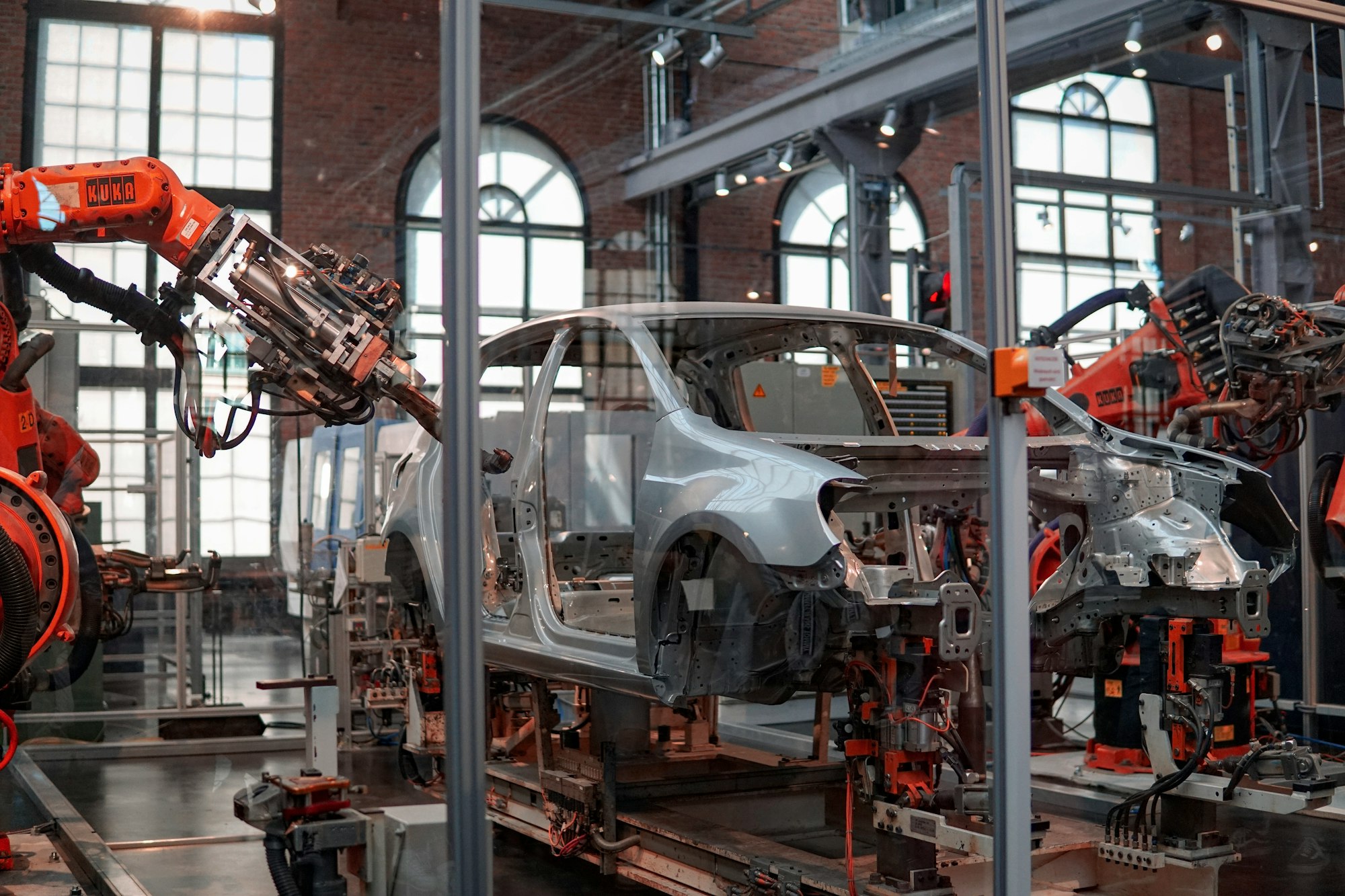Would you like to not have to work?

Close your eyes and picture not having to work without the need to worry about earning money. Is that a future that excites or concerns you?
If AI in the future automates the vast majority of jobs, leading to widespread unemployment, this may be a question we may need to seriously confront.
While this future appears to be in the distant future, the truth is no one can predict the future. (Case in point: nuclear chain reaction). I find that many of those who don't think this future is possible (that I've spoken to) fixate too much on our current state of play. They look at today's systems like ChatGPT and assume that future systems are constrained by capabilities today. They don't even try to conceptualise the counterfactual.
Even if mass unemployment from automation does happen in the long-term, the steps we take today and tomorrow can lead or divert us from that future. So, as advised by Scronfinkle in Superintelligence1, we shouldn't take the "let's cross that bridge when we get to it approach" but rather a "let's consider our options now while we have more breathing room before it's too late".
What is universal basic income?
I won't be focusing on universal basic income for the rest of this post, but I'll provide a quick summary here of what it is as a way of showing one of the ways in which people are able to survive without needing to work.
According to Investopedia, universal basic income (UBI) is a government program where 'every adult citizen gets paid a set amount of money regularly'2. With everyone receiving payment, it may help to reduce poverty and remove the need for other social security systems and safety nets that may be mired in a lot of bureaucracy and administration on whether someone is eligible.
In Finland, they have trialled handing €560 a month tax-free to 2,000 unemployed people (randomly selected) between 25-58 years old3. The participants were free to spend that money however they wished. The researchers wanted to see whether it would encourage unemployed people to take on jobs, rather than worryingabout losing their unemployment benefits. Some argue that this won't help, as it's not providing an incentive to seek work, but it's interesting to see how the experiment fares. The US 2020 presidential candidate Andrew Yang, a major proponent of UBI, has suggested a $1000 opt-in program where volunteers have to forego any other benefits (even if they're earning more through benefits, this programme hands out money unconditionally and with little administration, so there's the advantage of guaranteed income). Yang claims it's enough to help people (and the money will go back into the U.S. economy), while not enough to disincentivise people from working (lower than the U.S. poverty line of $1270).
UBI isn't a new concept. Since as early as the 16th century, Thomas More suggested that a guaranteed income should be provided to everyone, regardless of how much wealth they have2.
In recent times, the concept of UBI has picked up a lot of momentum out of concern that AI will eventually cause huge displacement leaving a lot of people unemployed. In this post, I'm going to focus on this angle – whether a largely job-free world is something that we as a society want, rather than whether it can help reduce the bureaucracy around existing social security systems.
Why automation is happening & inequality is growing
To ensure everyone is on the same page, let's start with why automation is happening and is likely to continue to happen.

In our (largely) capitalist world, for-profit companies fundamentally exist to maximise profit (by its very definition). No surprise there. In the long run, machines are cheaper than humans. Machines don't need to take sick days or holidays, don't require a pension or any other benefits. In other words, they are able to work 24/7. Machines require higher capital expenditure (up-front cost) but a lower operational expenditure (the aforementioned ongoing costs like holidays and pension)5.
To make this more concrete, take Foxconn (manufacturer of iPhones and other devices) in China. Foxconn has around 1 million employees and wants to supplement this with 1 million robots5. They paid $25,000 per robot to handle routine tasks. Foxconn's human employees, by contrast, are paid around three times less than this5. The robots are not currently there to replace humans, but that is very much their long-term goal.
As companies automate and replace humans, their profit margins are likely to increase (as their costs, over time, decrease). This could lead to higher levels of inequality, where the gap between those at the top (e.g. C-suite executives, shareholders) earn more, and the rest earns less. With technology companies like Google and Amazon yielding more power than ever before, we have to ask ourselves whether this is desirable, particularly if they continue to evade tax, so money isn't going back into our public services.
In my view, inequality is not inherently bad. It can be bad when those with more power use it to their advantage in ways that can damage our democracy, for example. Powerful business moguls using their money to sway world leaders come to mind. Not feeling like you need to compete with the Joneses across the road, on the other hand, is less pernicious. To extend this line of argument, if those at the very top get to keep their jobs simply because they don't want to automate themselves, only us mere foot soldiers or pawns, then we need to consider what the possible impact of that could be. Could they bully us into a world that suits them? While purely speculative, it's worth considering if this is a future we are on the path to, in order to come up with solutions.
Will people lose a sense of purpose and fulfilment?
In 1759, Voltaire wrote that 'work keeps at bay three evils: boredom, vice and need'6. In the absence of work, will people get bored? For those that derived a sense of purpose, fulfilment and meaning from work, will they be able to regain this by doing something else?
Children tend to do quite well without work. However, that may be different because they tend to be provided for by parents or carers who often work. Some children, like I did when I was a boy, often dream of how amazing it would be to get paid to work rather than go to school. Dreams of becoming an astronaut, doctor, athlete or wizard (the last one might have just been me) can permeate the minds of children.
Retired people are a mixed bag. Some love the newly-found freedom to pursue whatever they want. Others don't like it. It may be slightly different for senior citizens if they're also not in great health and so they're not able to spend it in the ways they would like to (e.g. travel the world).
Another category of people we have data for are those that lose their job. I would need to find a reference for this, but I recall Max Tegmark talking about how after many employees in the U.S. lost their job in the steel industry, they were given paid redundancy packages. Overall, this led to higher rates of alcoholism, drug abuse, divorce, depression and suicide.
Some jobs can provide their employees with a sense of meaning and fulfilment. Medics and those in the healthcare sector have incredibly difficult jobs, but it can also be very rewarding knowing that they're making a difference in people's lives. The same could be said about scientists helping fight the climate crisis and teachers. That's not to say that those people don't enjoy their lives out of work, but their work may be a fundamental component of their happiness. While the purpose of work is to get something done and provide people with an income rather than provide happiness, it may be a byproduct.
Do we live to work or work to live? If we are no longer economically useful in society, will we move away from consumerism and more to things that money can't buy, like spending quality time with our loved ones? But how valuable would our time be in a world without work?
Value of time

One argument that a friend recently put forward is how free time may lose its value if you have too much of it. With regular 9-5 jobs and the other commitments (family, chores, etc.) that fill many of our lives, we're constantly busy and may find it hard to carve out 'free time'.
Knowing that our free time is limited may help us appreciate it more and, therefore, want to utilise it better. If most of our time was free time, was Voltaire right? Would we get bored? How many Netflix shows can someone binge-watch or holidays can you experience before it gets repetitive?
Innocent bystanders
If that's a future that sounds positive to us, that's great. We can simply ride the wave. If not, we don't need to be innocent bystanders with no say or input in the matter. We can help push forward a future that's worth looking forward to rather than be apathetic and resigned to something that doesn't have to happen.
References
- Superintelligence: Paths, Dangers, Strategies, 2014. Nick Bostrom.
- Universal Basic Income (UBI) definition. Investopedia. https://www.investopedia.com/terms/b/basic-income.asp
- Is universal basic income working? We went to Finland to find out | CNBC Reports. https://www.youtube.com/watch?v=mkF-Lsy-SlM
- Andrew Yang Makes the Case for Universal Basic Income. https://www.youtube.com/watch?v=TABoe_wLPYc
- The Industries of the Future, Alec Ross. Page 37.
- Life 3.0, Max Tegmark

